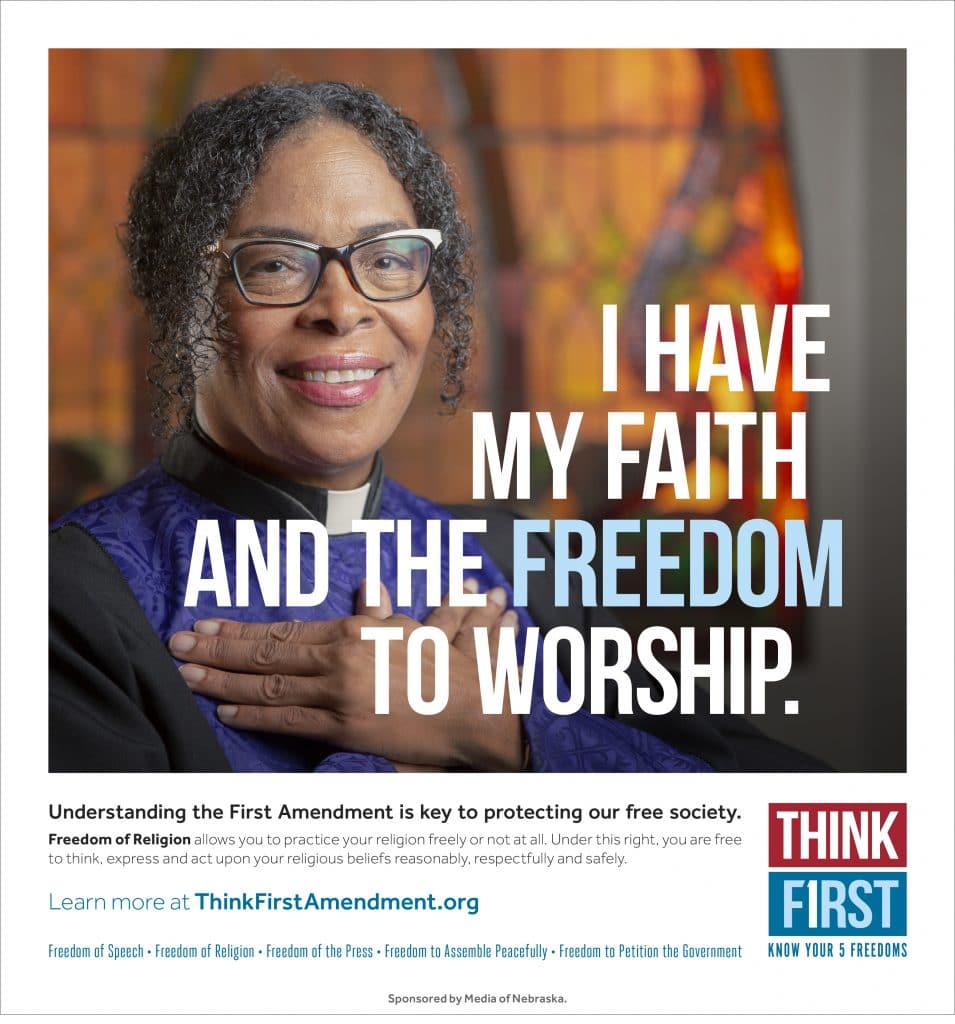Nebraska Press Association
Protecting Freedom of the Press since 1873
Since 1873, your Nebraska Press Association continually strives to protect the freedom of the press, and assist the goals of its members, friends, and partners, including newspapers, advertising agencies, and individuals across the state of Nebraska. As Nebraska’s oldest trade organization, we are continuing that tradition in the 21st century.
Think First Public Information Campaign
In 2018, NPA and Media of Nebraska sponsored a multimedia campaign to promote awareness of the First Amendment. Through newspaper, TV, radio and social media, plus the campaign’s website, Think First reached an audience of over 12 million after the initial press conference on June 28, 2018 — in Nebraska and nationwide. Images from this campaign are featured at the top of this page.
Visit the website at https://www.thinkfirstamendment.org.
Media of Nebraska
NPA is member of Media of Nebraska, whose mission is to persuade the Nebraska Legislature not to limit the First Amendment rights of the news media and to pass legislation that enhances those rights.
Media of Nebraska was formed in 1972 when media representatives were reminded that it was better to defend the First Amendment concerns and access to information in the legislative branch than to have to fight for those rights in court. Current members include the NPA, the Nebraska Broadcasters Association, Nebraska Daily Publishers, Journal-Star Printing Co. and Omaha World-Herald.
Media of Nebraska monitors all legislative bills introduced in the Nebraska Unicameral for any effect on First Amendment concerns or access to information.
Subjects covered by Media of Nebraska include, but are not limited to:
- Open meetings and public records.
- Access to criminal records.
- Advertising taxes.
- Consumer legislation as to regulation of advertising.
- Campaign spending reform, including reporting and disclosures.
- Privacy, libel and slander.
- Obscenity.
- Access to court proceedings.
- Confidential news sources and shield law questions.
- Signed editorials.
- Forced disclosure of news employees’ sources of income.
- “Right of reply” type laws.
- Notice-of-acquittal legislation.
- Ban on publishing crime victims’ addresses.
- Change of venue.
- Death certificates, birth certificates — other vital statistics.
- Law limiting political polls.
- Access to parole board records.
- Access to juvenile records.
- Government control of news content or opinion in public broadcasting.
- Legislation and administrative rules regarding professional advertising.
- “No-compete” personnel clauses.
- Wire taps and telephone company cooperation.
- Destruction and preservation of public records.





